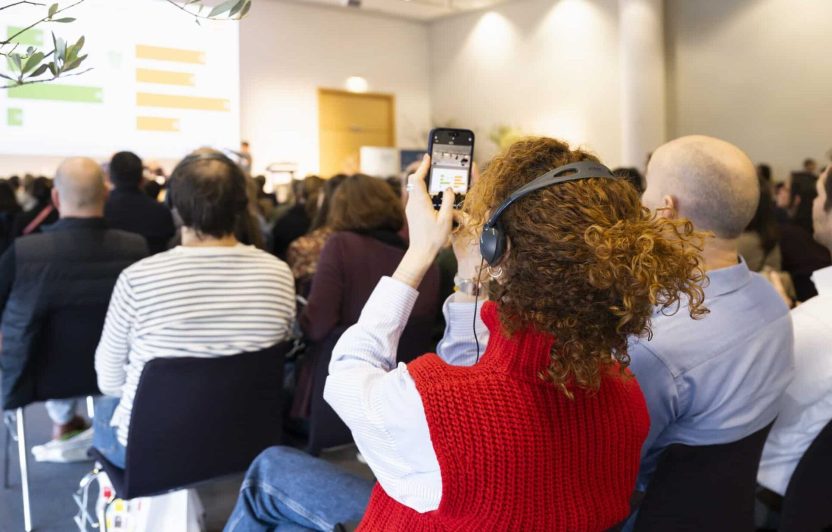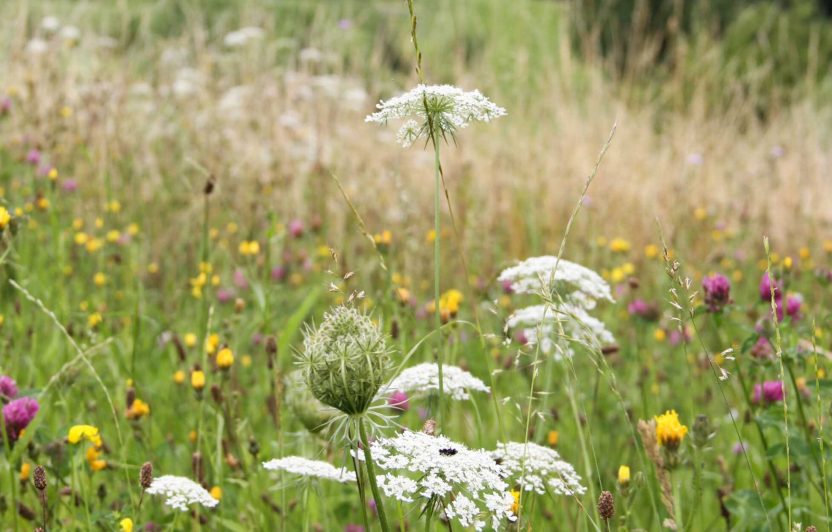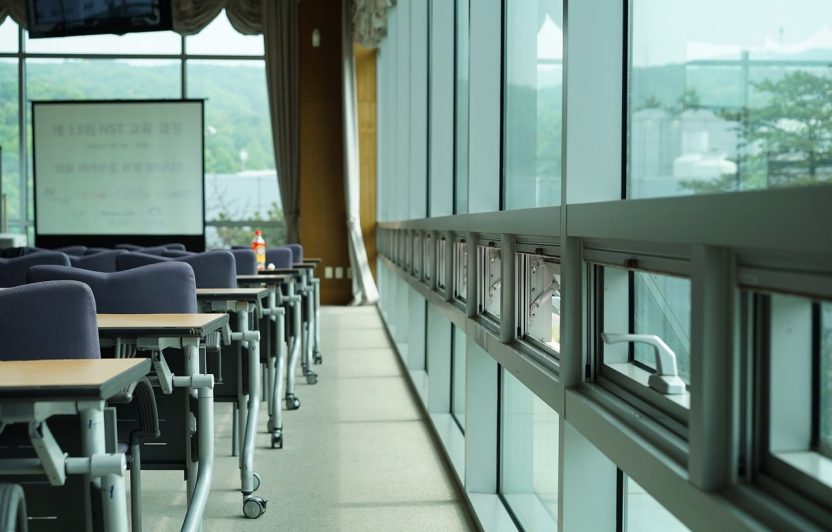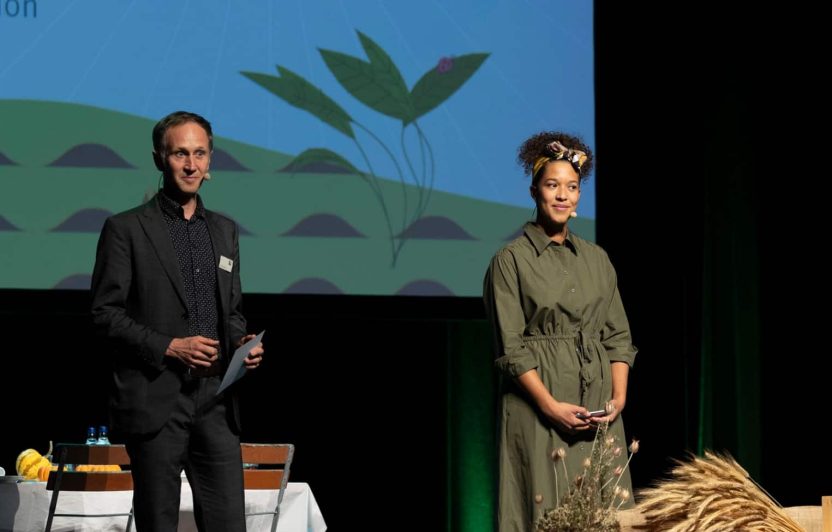The Initiative demands a prohibition on all synthetic/chemical pesticides – isn’t that too radical?
Yes, this demand does seem radical at first. But once we know what damage these agro-chemicals are causing – to the land, people, animals and the whole of biodiversity system – then it just seems reasonable. After all, chemical residues are not only found on the fields themselves, but also around them, in the water systems, inside many living beings and (ultimately) in our own food. If we no longer allow poisons, we’ll have to turn to biological methods of pest control. Healthy soil means healthy plants – and a healthy plant is afflicted by fewer problems with insects and diseases.
Isn’t Switzerland already relatively sound, ecologically speaking, in comparison with its neighbouring countries?
Unfortunately not. Studies show that the Swiss farming industry uses a volume of pesticides that is higher than European average. We do specify threshold values for the permitted levels of toxins in food and water, but these are repeatedly violated- in fruit, for example. And there’s so much that we still don’t know; how do the different toxins and synthetic substances interact? What are the effects of their accumulation in the body, particularly in the case of babies and young children? For this reason alone, we must ensure that we reduce the volume of toxic substances found in water and food to zero.
Can farming be profitable in the absence of pesticides?
To put it simply – if the system didn’t work, there wouldn’t be any organic farmers, no bio-dynamic farmers and none who work with permacultures or according to agroecological guidelines. The fact that many of these variations do successfully exist and do business demonstrates its viability.
Wouldn’t food be much more expensive if the Initiative were adopted?
In the short term, some foods would be a little more expensive – but they would become cheaper in the longer term. It’s important that we don’t just look at what will become dearer in the shops tomorrow. Pesticide residues in our food may trigger illnesses, while some pesticides have been proven to cause cancer. The consequences are not visible immediately, but we’ll pay a high price for our cheap food in the long run. It’s only cheap because costs are externalised – i.e. not paid by the originator, but by the overall population – in relation to soil erosion, water contamination, deforestation, loss of important insects, a general loss of biodiversity, health-related costs, and so on. Many organically-produced goods would become cheaper if organic became the normal standard. Currently, excessive prices are demanded because major distributors know that the consumers of organic goods are prepared to pay those prices. If organic becomes the norm, this situation will change. We must also face up to how little we currently pay for food in comparison with the past. When we say that “The food produced by the farmers is too expensive” that simply demonstrates a lack of respect for their hard and vitally important work.
Many consumers won’t buy products if they don’t look perfect – e.g. potatoes with worm holes or apples with scab marks.
Nature is not perfect and nature is variable – but we consumers have been persuaded that everything should look perfect and similar for so long that many of us no longer know any different. If an apple looks too perfect, I don’t eat it because I know it’s isn’t natural. If an apple has a worm in it, I just cut it out. I must say, however, that organic methods do produce really wonderful fruit and vegetables, naturally.
If pesticides are prohibited, won’t farmers and their families worry about their income, given that they already struggle to make ends meet?
We’ll need to support farmers during the transition phase. Agriculture is currently controlled by industry; farmers depend upon seed, herbicides, pesticides and artificial fertilisers. Many feel sick to the pit of their stomachs when they realise how dependent they have become on industry and the banks. They can no longer run their farms in the way they want. Some of them have travelled so far along the wrong path that it will be difficult for them to step off it. Margins in agriculture are small, and many farms go into liquidation every year because their investments have come to nothing. The farming community must consider whether it really wants to exist to produce the cheapest possible food, and to survive at any cost. In fact, however, farmers are the very foundation of a society; none of us can survive without food.
Can we actually afford the subsidies for the transition stage?
We pay these subsidies already, for a farming system with pesticides and artificial fertilisers. Currently, we tax payers invest about CHF 3.5 billion every year to support an unhealthy system. In future, the farmers would get their money for good agroecological farming.
Wouldn’t an agriculture system using ecologically-sustainable methods be generally too expensive for Switzerland?
Here too, it’s important to take the longer view of this development. Pesticides are expensive, and they will become ever more expensive in future. As time goes by, it will increasingly become more expensive to work against nature than to work with it. A farming system based on the use of toxins doesn’t take account of the whole system; this is a reductionist’s view. “There’s a weed; there’s a bug. I’ll spray them both dead”. That’s all fine …until the toxin you’ve used stops working. Then you need something stronger. From industry’s point of view, that makes sense; it constantly develops new and more expensive poisons. However, this research becomes more and more costly because it’s increasingly difficult to find toxins that are still effective. Agroecological methods are sustainable, but also complex, which is why far more research is urgently required. However, by far the majority of the public funding for research is invested in the industrial agriculture sector – and if we don’t invest any money in research into agroecology, we will (of course) not find any new solutions there.
So, can we feed a growing population with agroecologically-produced food?
Studies commissioned by the agro-chemical industry claim that this is not possible, but independent studies, such as that from IDDRI (2018), show that Europe could be fed very successfully using agroecological methods – on condition that we eat less meat (which would, of course, also be healthier and better for the climate). Other studies, such as that from IPES-Food (2016), demonstrate that the drop in yield in the absence of pesticides would only be about 8%. Bearing in mind that about 40% of all our food currently lands in the dustbin, it soon becomes clear that we would already have more than enough food, even if we went 100% organic.
So, is a complete transition to a farming system without pesticides at all realistic?
The transition stage will not be easy; it takes time, effort, persistence and new science. Up to now, farming has been a matter of evolution and we have never stood still. At some stage, however, we swerved onto the reductionist track, because it promised a simple solution, and the agricultural industry built its business model on this. Switzerland has made a commitment to reach the UN’s Sustainable Development Goals by 2030. This will only be possible if we convert our farming industry to agroecological principles. It is something we can still do – but only if we start upon it straight away.
What will Switzerland look like in 10 or 15 years if we don’t ban pesticides today?
We’ll have a more monotonous landscape, fewer different species and a poorer choice of food on our plates. This trend is detectable everywhere – a little less with vegetables, otherwise we’ll end up with nothing but potatoes, wheat and maize, and maybe rapeseed. Farms are becoming ever more specialised; one now grows nothing but soya, another nothing but maize, another chickens, pigs or cows on a mass production basis. That’s bad for the soil, bad for biodiversity, bad for the animals, bad for our nutrition and bad for the farmers. If you’re a farmer who just grows maize – I’m not altogether sure whether that’s all that much fun. But what really worries me is this; we would be putting ever more poisons in the soil, and leaving them there for future generations to inherit. And this also increases the probability of disease, i.e. cancer. If we were to do business on an agroecological basis, this would also have a positive effect on the climate; not only would the carbon be bound, but the soil would also be less dry. We’ve known all this for a very long time – we could somehow manage things like this for maybe another 20 years, but then it’s over. We have to realise that the transformation needs to be now, if we want to pass on to our children and grandchildren a world in which it’s possible for them to live. It simply isn’t an option for us to carry on as before.
Collaboration: Daniel Seifert, politics advisor





